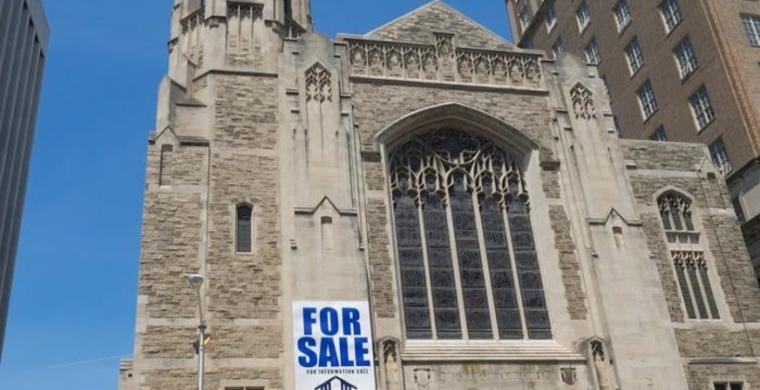Nonstop Decline: Presbyterian Church (USA) Doesn't Hit Brakes in 2018
By Jeff Walton
https://juicyecumenism.com/2019/04/29/pcusa-decline/
May 1, 2019
Presbyterian Church (USA) officials are reporting that the oldline Protestant denomination shed another 62,375 members the same year that their governing General Assembly declared "Zionism is based on racism" and denounced religious freedom protections.
At its current rate of shrinkage the PC(USA) will not exist in about 20 years.
Statistics made available this week by the PC(USA) Office of the General Assembly (OGA) show the denomination continues to decline, dropping to 1,352,678 active members in 2018. A net 37 percent of members have died, transferred out, or simply vanished in the past decade.
The drop of nearly 5 percent is consistent with an accelerating exodus of members since the denomination redefined marriage as between any two persons in 2014.
The denomination in 2011 revoked a clause requiring ordained PC(USA) clergy to practice fidelity in marriage or chastity in the single life. The PC(USA) has captured headlines with an increasingly antagonistic anti-Israel stance in recent years, including advocacy for the Boycott, Divestment and Sanctions (BDS) movement. In domestic policy, the PC(USA) governing body denounced religious freedom protections claiming that religious freedom was used "to justify exclusion and discrimination."
A press release from the OGA attempts to put a positive spin on the numbers, noting that 34 churches were dismissed to other denominations in 2018, compared to 45 the year before. Separately, a summary of statistics reports that 108 churches dissolved in 2018, up from 104 in 2017, a trend that has continued to increase in recent years. Zero churches have been received from other denominations since 2010.
"We are encouraged by the slowing trend downward," the Rev. Dr. J. Herbert Nelson, II, Stated Clerk of the General Assembly of the PC(USA) is quoted as saying in an article on the denomination's web site. "The church of the 21st century is changing and we still believe God is preparing us for great things in the future."
The denomination, whose predecessor bodies once counted a combined 4.25 million members, appears to be struggling to adapt to those changes, with declines in the number of ministers and baptisms. Reaching youth has been an especially difficult challenge: 56 percent of members are now over the age of 55, and baptisms are dropping precipitously.
The Louisville, Kentucky-headquartered PC(USA) was formed in 1983 as a merger of The Presbyterian Church in the United States and the United Presbyterian Church in the United States of America. Its predecessor bodies started declining in the mid-1960s, but the decline accelerated significantly in the 2000s.
Other U.S.-based Presbyterian denominations have fared better: in 2012, ECO: A Covenant Order of Evangelical Presbyterians, was formed by congregations departing the PC(USA), while the Evangelical Presbyterian Church (EPC) split from the PC(USA)'s Northern predecessor body in 1981 and has continued to attract congregations from the PC(USA). Separately, the Presbyterian Church in America (PCA) split from the PC(USA)'s Southern predecessor body in 1973 and has posted 7 percent growth over the past five years.
VOL FOOTNOTE: The bigger question is who will beat whom to the bottom first: TEC or the PCUSA? Based on available statistics the PCUSA has been locked in to a 5% rate of decline for years now, plunging from 3.5 million in the early 2000s down to 1.3 million in 2018. TEC is at about 1.7 million, declining about 2% annually. Remember these are membership figures not Average Sunday Attendance.
One observer noted that TEC also has at least two things working in its favor that the PCUSA lacks: a pipeline of at least a few new members (disaffected former Roman Catholics) and a distinctive "brand" that has some appeal in college towns and urban centers. The PCUSA has no such distinctive brand and -- from what their data shows -- are attracting almost no one into the denomination.
Lastly part of the reason that we are seeing this decline is because the PCUSA has excellent levels of accurate congregational reporting. Since the General Assembly requires a financial assessment for each member a church claims (per capita), there is a strong incentive not to keep inactive members on a church's rolls. TEC has no such requirement, so we see absurd membership numbers reported from parishes that have not seen those people recently.














